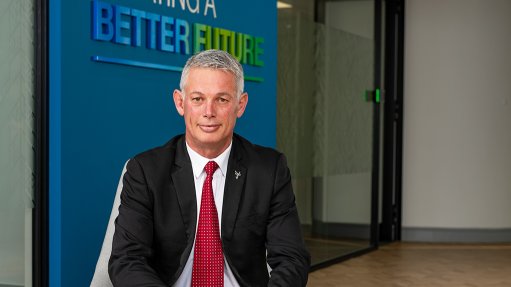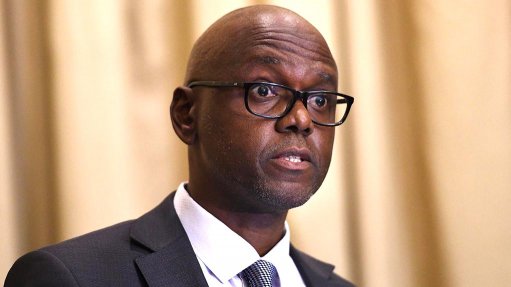The Carbon Tax: you ain’t seen nothing yet
Two stark messages emerged from a recent seminar on the Carbon Tax, which was hosted by the Mail & Guardian and sponsored by Webber Wentzel: this tax is here to stay, and it will only grow bigger.
The Carbon Tax is a reality; it came into force on June 1.
Companies which have not already done so – and there are many – need to get to grips with this new tax, as it is far from simple to cope with, and there are penalties if you don’t get it right.
CFOs and CEOs tend to understand these types of challenges, and they do understand the concept that the Carbon Tax is now a number. But this is a team challenge – to get the number right. Do you know what your number is? It is vital that you do.
Encouragingly, companies are waking up and asking the right questions. But it is late, as the liability for carbon tax effectively started on June 1, 2019. There is, nonetheless, time to get it right, even if you cannot wait until you have to make your first payment in July 2020.
Paying the tax is much more complicated than clicking through a bank transfer. Companies are required to monitor – and to do so diligently and accurately – the scale of their emissions. Accurate records must be kept, and accurate reports must be made to the environmental authorities, which will be relied upon to work out the payment to the South African Revenue Service.
This is a challenge that cannot be done by any firm that operates in silos. The plant and engineering people need to talk to the finance team. There have to be accurate readings on what is going on at several points in the production process. This takes precision and dialogue.
We are also finding that the methodologies companies use to report their emissions vary, but now they all need to be aligned with the Carbon Tax legislation. Do the tax people understand that the environmental team has made some assumptions on what is in or out – of the Carbon Tax net?
Investment planning needs to factor in the new tax – and whatever incentives or carrots are available and will later become available for energy saving and reducing your carbon footprint. Does your company have a long-term view on the Carbon Tax – and how is it being priced into your new investment planning? Do you understand what carrots are available to stimulate more research and development into these ‘carbon reduction’ questions?
From the budgeting and accounting perspectives, a firm will need to think clearly on how to deal with this new tax. Where does the cost go in the income statement? Do they account for it in the cost of sale or in the overheads? How do you pass it through to your customers, and are you going to be able to do so?
Meanwhile, companies will pay the carbon fuel tax every time their vehicles are filled up, and this is another factor which will need to be understood and taken into account in the budgeting of fuel costs.
I tried at a recent seminar to establish the expectations of the National Treasury about the Carbon Tax. How much do they expect to collect? The answers were a bit evasive. The carbon fuel tax has been budgeted at about R1.8-billion a year, while the rest of the anticipated Carbon Tax collection is not visible to me.
There were also questions about ring-fencing the tax, so that all the carbon tax that is collected is targeted into carbon-reduction initiatives. We were told by National Treasury officials that they don’t work in that way, as government must focus on the priorities of the day. What if less tax is collected than is needed for the green spending, they asked?
Once a company has come to grips with the Carbon Tax, there will not be a chance to sit back with a bottle of wine and relax. There will still be more to do, as the rate will increase on January 1 every year.
The National Treasury regards the initial scale of the tax as far too modest, and regular and painful hikes lie ahead. The officials were clear about this.
Meanwhile, we are still awaiting final details on implementing the tax (such as rules, forms and regulations on the allowances), and for some clarification of the incentives (such as carbon offsets) which will be offered to those firms which can make real progress in moving away from carbon pollution.
The introduction of the Carbon Tax had been delayed a number of times; each time justified by the need for more consultation.
It is confusing to see the tax coming into force without the introduction of all the associated regulations, and the sooner we obtain full clarity, the better. Businesses need to know the rules now, and will not welcome a longer period of uncertainty until they make their first payment in July 2020.
Meanwhile, we are being told there will be a further delay by government in adopting a crucial energy strategy document – the Integrated Resource Plan – which will now only be tabled in September.
This will look at the future energy mix, and should entail a speedier shift to renewables, and a reduction in carbon-belching coal.
South Africa needs to work with the rest of the world in devising and implementing decisive, effective and ambitious measures to avoid and mitigate against climate change. There is local and overseas funding to support this transition. Use it.
The Carbon Tax has been launched and it will require intense focus, planning and effort by industry as its impact and scale continue to grow. This taxation stick will have an impact, but do not forget the carrots which will be out there as well. Good vision is needed to spot the opportunities.
Comments
Press Office
Announcements
What's On
Subscribe to improve your user experience...
Option 1 (equivalent of R125 a month):
Receive a weekly copy of Creamer Media's Engineering News & Mining Weekly magazine
(print copy for those in South Africa and e-magazine for those outside of South Africa)
Receive daily email newsletters
Access to full search results
Access archive of magazine back copies
Access to Projects in Progress
Access to ONE Research Report of your choice in PDF format
Option 2 (equivalent of R375 a month):
All benefits from Option 1
PLUS
Access to Creamer Media's Research Channel Africa for ALL Research Reports, in PDF format, on various industrial and mining sectors
including Electricity; Water; Energy Transition; Hydrogen; Roads, Rail and Ports; Coal; Gold; Platinum; Battery Metals; etc.
Already a subscriber?
Forgotten your password?
Receive weekly copy of Creamer Media's Engineering News & Mining Weekly magazine (print copy for those in South Africa and e-magazine for those outside of South Africa)
➕
Recieve daily email newsletters
➕
Access to full search results
➕
Access archive of magazine back copies
➕
Access to Projects in Progress
➕
Access to ONE Research Report of your choice in PDF format
RESEARCH CHANNEL AFRICA
R4500 (equivalent of R375 a month)
SUBSCRIBEAll benefits from Option 1
➕
Access to Creamer Media's Research Channel Africa for ALL Research Reports on various industrial and mining sectors, in PDF format, including on:
Electricity
➕
Water
➕
Energy Transition
➕
Hydrogen
➕
Roads, Rail and Ports
➕
Coal
➕
Gold
➕
Platinum
➕
Battery Metals
➕
etc.
Receive all benefits from Option 1 or Option 2 delivered to numerous people at your company
➕
Multiple User names and Passwords for simultaneous log-ins
➕
Intranet integration access to all in your organisation




















